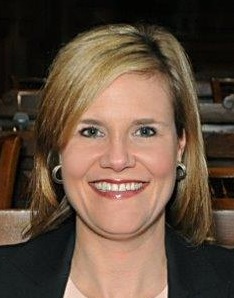In November, Georgia voters will decide Gov. Nathan Deal’s “Opportunity School District” plan for state takeover of public schools deemed chronically failing. Reporter Newspapers asked state Sen. Elena Parent (D-Atlanta) to explain why she opposes OSD.
We have a problem with education in this state. We are failing many of our students, who leave unprepared for college, for tech schools, for life as an adult. It isn’t acceptable, and something needs to be done.

We agree on the problem. Where we disagree is the solution.
The argument for the Opportunity School District is simple. Local school districts have run schools that have failed too many children, and the state should intervene if they can’t get their acts together. But intervene how?
The Opportunity School District constitutional amendment sets up a school district that would be entirely controlled by one superintendent appointed by the governor. There won’t be any school board. The public won’t have the opportunity to vote this superintendent out of office. This gives a lot of potential for unfettered change, but it also means the public has no assurance about what the path forward will be for these schools. “Trust us,” is the message. But has the state shown itself to be worthy of that trust when it comes to education?
If one examines the list of schools that would currently be eligible for takeover if the constitutional amendment passes, one immediately notices something they share in common: They are all in high-poverty areas. We know that poor children often don’t get the same educational resources wealthier students do, even within the same district: sub-par facilities, less experienced or talented teachers, and fewer materials and electives, just to name a few. And that’s not even mentioning burdens many poor children bring with them when they arrive at school every day: food insecurity, less access to health and dental care, transience, less parental availability.
But are these factors discussed by the Opportunity School District legislation? No. Further, allies of the OSD have shown little interest in discussing the fact that the state has underfunded education for years. For many, that makes the “trust us” nature of the proposal unappealing.
The legislature developed a funding formula for schools called “Quality Basic Education” (QBE) back in 1985. It’s been underfunded for years, especially since 2002. This means schools can’t hit their targets for class size, counseling, teacher merit pay. We still have school systems struggling to fund even the full school year of 180 days post-recession. Underfunded schools make learning harder.
Supporters of OSD point to New Orleans, where the state similarly took control following Hurricane Katrina in 2005. Scores at these schools have improved versus the rest of the state during that time, although the picture isn’t completely clear due to frequent openings and closings of schools and changes in grading systems, among other things. Further, New Orleans experienced a huge influx of private funding after the storm, almost doubling the per-pupil spending. Georgia does not propose to take over almost an entire district or eliminate attendance zones, as was done in New Orleans. The OSD is therefore more similar to efforts in Tennessee, Michigan and the rest of Louisiana, where the results have been lackluster.
If we are going to have a systematic, focused plan for improving education in all of our schools, especially those that are failing, we need to stop chasing the latest fads—tons of testing, “school choice,” giving families public money to attend private schools, or believing in the magic of anything called a “charter.” These are all Band-Aids for a problem that cries out for real system-wide reform.
What we need is a reinvigorated, talented teaching and administration force coming out of education schools that are first-rate and difficult to get into—which is not what we have today. We need to treat teaching like the critical profession it is and make sure we are attracting our best and brightest to the profession. We need a rigorous curriculum. We need the resources to get every child the support he or she needs to be a success in life.
Chasing the latest fad by turning schools into charters run by an almost unaccountable superintendent in Atlanta sounds like an iffy recipe for success to me. How, exactly, will these charters be run in a way to enhance student performance? In impoverished rural districts, with what money will they do it? Will they hire for-profit charter operators and further privatize public education? We don’t know.
If we were serious about improving education in Georgia, we would stop offering up platitudes and instead focus on what we know works.

Excellent assessment, Senator Parent.
Another well articulated and intelligent circumspect analysis by Georgia Democrat State Senator Elena Parent. Thank-you Senator, for representing us so well.
Agree with the assessment. Sounds like what you are recommending is to treat education like we treat business – eliminate unions, eliminate tenure, pay for performance, attract high-flyers, etc. Seems very Republican… I’m not complaining about that.